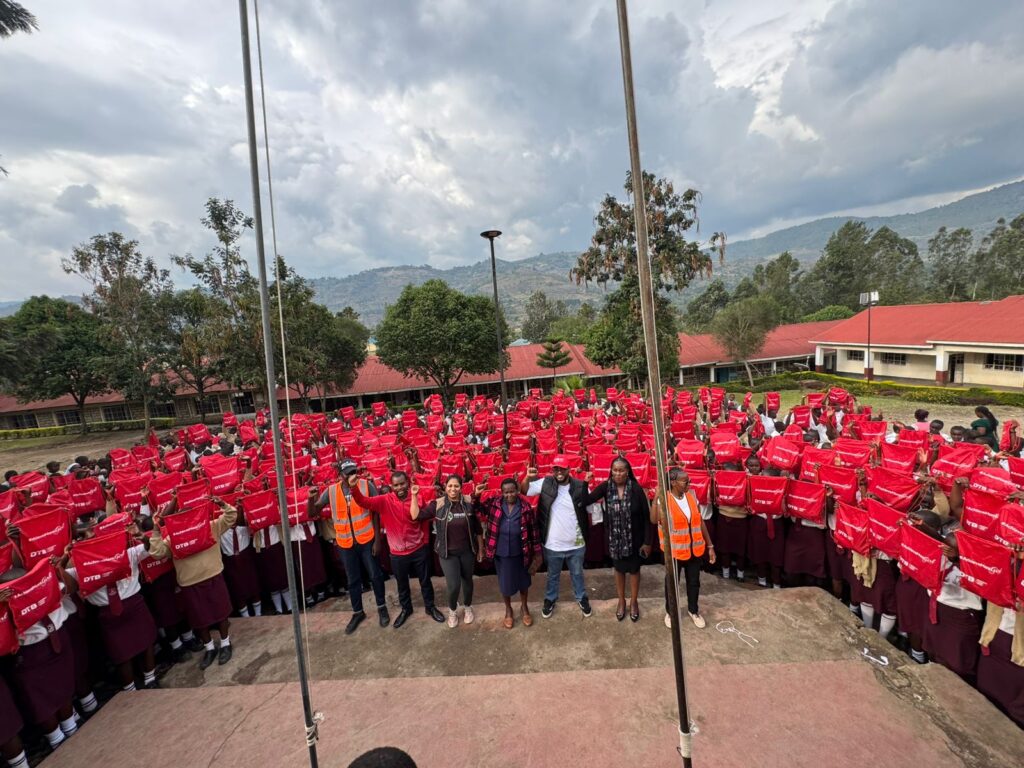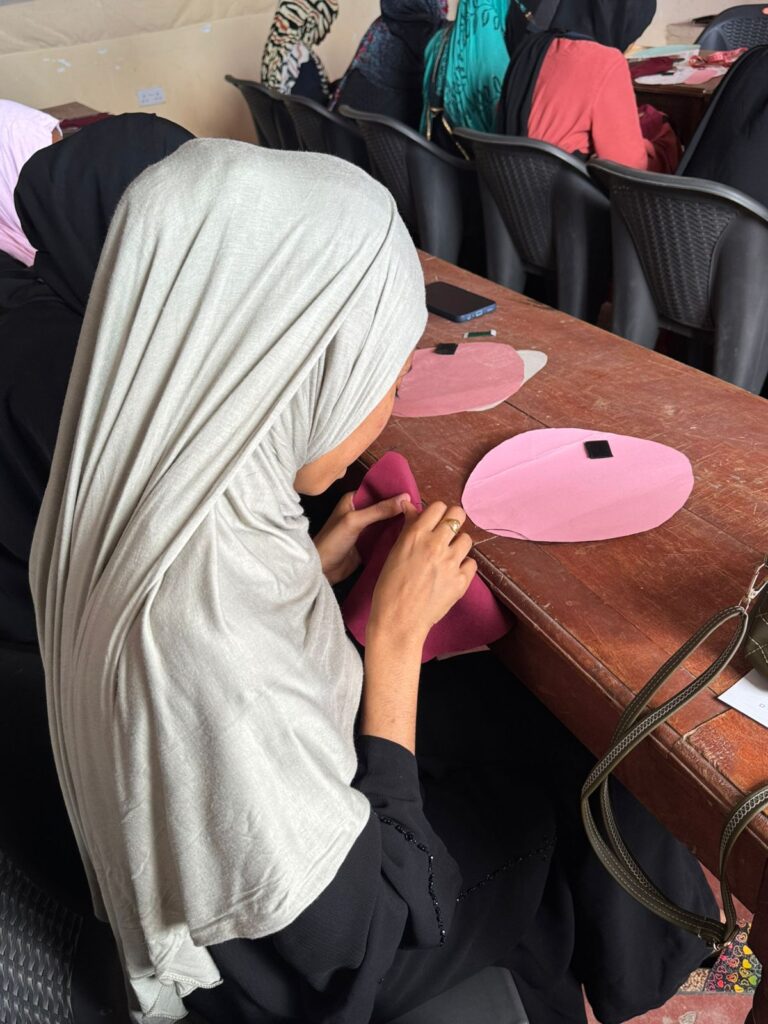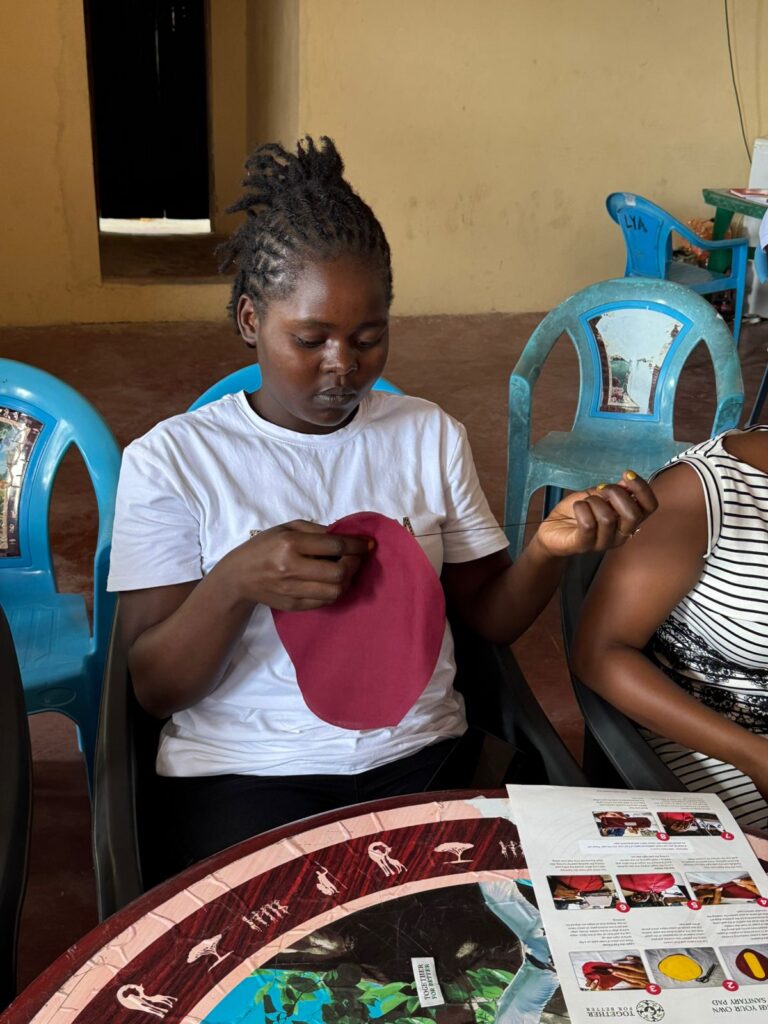In early 2025, Together for Better Foundation (T4B), in partnership with the Kenya Red Cross Society and the International Centre for Humanitarian Affairs (ICHA), launched a transformative menstrual health outreach program in Nandi and Lamu counties. The initiative aimed to promote menstrual dignity, reduce stigma, and build long-term sustainability through access, education, and community empowerment.
This program responded to a critical need: too many adolescent girls in underserved communities miss school due to lack of menstrual products, limited knowledge, and deeply rooted stigma. By focusing on practical solutions and inclusive education, T4B set out to change this narrative.
Empowering Girls Through Access and Education
At the heart of the initiative was the distribution of 1,500 reusable sanitary pad kits in each of the two counties, benefiting over 3,000 school-going girls. But this was not simply a handout. Each distribution was accompanied by comprehensive menstrual health education sessions designed to equip girls with the knowledge and confidence they need to manage their periods with dignity.
1,500 reusable sanitary pad kits
Topics covered included:
- Proper maintenance and use of reusable pads
- How to track menstrual cycles
- Managing menstrual pain
- Understanding sexual and reproductive health
- Early career awareness and confidence-building

These sessions created safe spaces for girls to ask questions, share experiences, and learn from trained facilitators. They also helped break the silence and shame often associated with menstruation, fostering a supportive environment in both schools and homes.
Building Skills for Long-Term Sustainability
T4B Foundation went beyond immediate needs by investing in skills-building for lasting impact. In both Nandi and Lamu, 50 individuals per county, including teachers, health workers, and community volunteers, were trained on how to stitch reusable sanitary pads.
This approach served multiple purposes:
- Empowering local actors with practical, income-generating skills
- Reducing long-term dependence on external donations
- Involving both men and women in menstrual health solutions, promoting shared responsibility
By engaging entire communities, the program ensured that menstrual health was not seen as a “girls’ issue” but a community issue, deserving of attention, investment, and action.
Community Engagement and Key Milestone Events

The menstrual health outreach rolled out successfully in both counties, receiving enthusiastic participation from girls, parents, and community leaders alike.
In Lamu County, the program gained additional visibility during the Kenya Red Cross Society’s 60-year celebration, where T4B supported the event by distributing 50 reusable pad kits to adolescent girls. This symbolic gesture underscored the foundation’s commitment to collective well-being.
Additionally, T4B participated in the Akili Kids Treasure Hunt event, where both children and their parents took part in interactive workshops on sustainable menstrual hygiene practices. Through fun and practical sewing sessions, families learned how to make reusable pads, further embedding the message of dignity, sustainability, and inclusion. At the event, 20 reusable pad kits were also distributed to participating families.
Multi-Stakeholder Partnerships Driving Impact
A key factor in the program’s success was strategic stakeholder engagement. The initiative brought together:
- Ministry of Health and Ministry of Education representatives
- Corporate partners, including Diamond Trust Bank
- Kenya Red Cross Society volunteers
- Teachers, gender officers, and local administrators
This multi-sector collaboration enabled a wider reach, deeper community buy-in, and a collective commitment to supporting adolescent girls’ health and education.
Looking Ahead: Sustaining Momentum and Scaling Impact
Together for Better Foundation remains steadfast in its mission to expand access to menstrual health resources, challenge harmful taboos, and build resilient, informed communities. By combining access to products, practical training, and inclusive partnerships, T4B is not just addressing a health issue, it is championing a movement for dignity, equity, and empowerment.
As the organization looks to replicate and scale this model across other regions in Kenya, one thing is clear: menstrual health is not a luxury. It is a basic human right, and together, we can ensure that every girl can thrive, learn, and lead with confidence.


